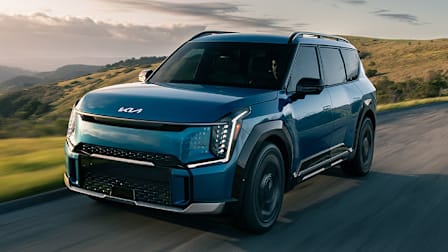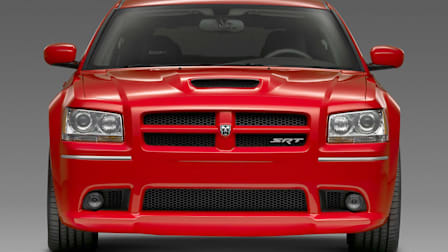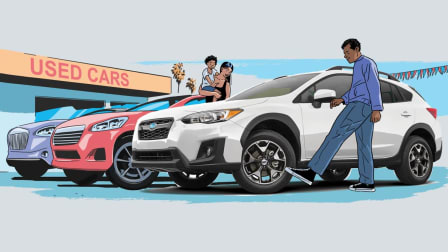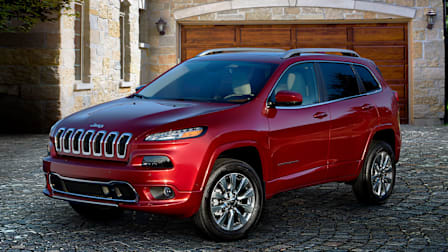Park Lincoln MKC SUVs Outside Until Fire Recall Is Fixed, Automaker Says
A fire might start under the hood due to a faulty battery sensor
Lincoln is recalling over 142,000 MKC SUVs from the 2015 through 2019 model years after 19 vehicles caught fire, either while parked or driving. Lincoln says that owners of these vehicles should park outside and away from structures until they get a free recall repair at a Ford or Lincoln dealership.
If Your Vehicle Catches Fire While Driving
No matter what you drive, here’s what you should do if your vehicle catches fire:
• Pull over as soon as you can and shut off the car. This stops the flow of fuel in gasoline-powered cars and shuts down the powertrain and accessories in EVs.
• Get yourself and your passengers out of the car as quickly as possible. The National Fire Protection Association recommends staying at least 100 feet away from the car. It’s also a good idea to stay upwind of the burning car, if possible, to avoid inhaling toxic smoke and to stay out of the path of the potential spread of wind-driven fire.
• Call 911 or have another motorist make the call to get emergency services on their way as soon as possible.
• Attempt to put out the fire only if you have clear access to the source from outside the car, have a suitable fire extinguisher and know how to use it correctly, and can maintain a safe distance away from the car. Only use an extinguisher approved for Class B or Class C fires; a label on the extinguisher will identify which kind of fire it’s suitable for. Unless the fire is small and localized to a specific part of the car, avoid it. Wait for the professionals to arrive if the car is engulfed in flames.
• Never open the hood or trunk if you suspect there’s a fire inside; the additional air flowing in could cause the fire to enlarge.
• Be aware of your surroundings. Never stand on an active roadway. If you’re parked at the side of the road, stay far behind the vehicle to avoid being hit if another car strikes your vehicle.
The Details
Vehicles recalled: Lincoln MKC SUVs manufactured between Aug. 20, 2013, and Aug. 2, 2019.
The problem: A damaged battery sensor could short-circuit and cause a fire to start under the hood of the vehicle, whether parked or driving.
The fix: Ford or Lincoln dealerships will install a fuse on the battery sensor circuit board, free of charge. The automaker says that this fuse will prevent a fire.
How to contact the manufacturer: Owners may contact Lincoln at 866-436-7332.
NHTSA campaign number: 23V378. Lincoln’s own number for this recall is 23S28.
Check to see whether your vehicle has an open recall: NHTSA’s website will tell you whether your vehicle has any open recalls that need to be addressed.
If you plug your car’s 17-digit vehicle identification number (VIN) into NHTSA’s website and a recall doesn’t appear, it means your vehicle doesn’t currently have any open recalls. Because automakers issue recalls often, and for many older vehicles, we recommend checking back regularly to see whether your vehicle has had a recall issued.
Stay informed about recalls that might affect your vehicle using our Car Recall Tracker.
Create a free account now to become a CR member.

